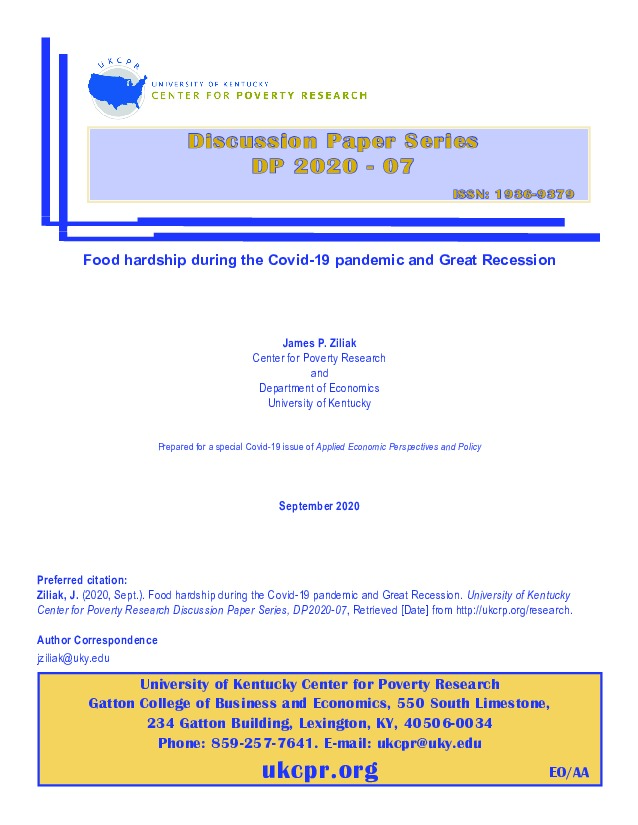I compare the extent of food hardships in the United States among all adults, and separately for seniors, in the two decades before and during the onset of the Covid-19 Pandemic. The data come from the 2001-2019 December Supplements of the Current Population Survey, as well as the newly released Census Household Pulse Survey. The results indicate that food insufficiency among all adults increased three-fold during the Covid period compared to 2019, and more than double that observed during the Great Recession. Over 1 in 5 Black adults were food insufficient in mid 2020, a rate double that of white adults. Food insufficiency among seniors increased 75 percent during the Covid period, but when broadening the definition to also include reduced variety of foods, the share of seniors food insufficient also more than doubled compared to 2019 and the Great Recession. Receipt of charitable foods among disadvantaged adults spiked over 50 percent in the Covid period, but the initial response among seniors was a sharp reduction, before rising. These patterns, which hold in richly specified regression models, are consistent with strong shelter-in-place and other social distancing measures enacted at the state and local levels in response to the Pandemic that were gradually relaxed over time.
Research
SeniorsPDF Thumbnail
